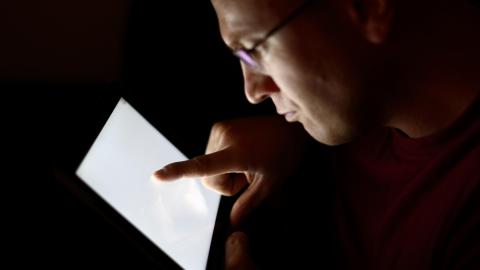Is Your Tablet Causing You to Lose Sleep?

What’s the Latest Development?
If you use your laptop or tablet computer late at night, the brightness of the screen could be disrupting your body’s release of melatonin, a key hormone in the body’s clock, or circadian system. Mariana Figueiro of the Lighting Research Center at Rensselaer Polytechnic Institute and her team showed that two hours of iPad use at maximum brightness was enough to suppress people’s normal nighttime release of melatonin. “The team designed light-detector goggles and had subjects wear them during late-evening tablet use. The light dose measurements from the goggles correlated with hampered melatonin production.”
What’s the Big Idea?
Though light emitted by laptop and desktop computers is usually more intense than tablets, their screens are typically kept at a greater distance from the eye, lessening the effects on melatonin production. “On the bright side, a morning shot of screen time could be used as light therapy for seasonal affective disorder and other light-based problems. Figueiro hopes manufacturers will ‘get creative’ with tomorrow’s tablets, making them more ‘circadian friendly,’ perhaps even switching to white text on a black screen at night to minimize the light dose.” If you do use electronics late at night, Figueiro recommends turning down the brightness.
Photo credit: Shutterstock.com
Read it at Scientific American




